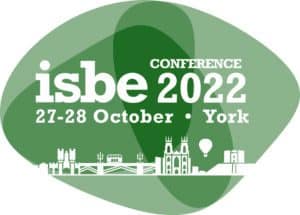Chairs:
Dr David Higgins, University of Liverpool
Professor Pauric McGowan, Ulster University
Catherine Brentnall, Ready Unlimited
ISBE2022 conference will see the launch of a new track! RMPI – The Research Methods, Practice and Inquiry/Impact track – will be a space to energise discussion and practice around how we inquire, in order to develop the skills, confidence and impact of researchers.
The aim of this track is to –
- stimulate discussion and explore challenges around current and new approaches in inquiry
- share and develop research approaches and advance knowledge
- develop researchers’ skills and confidence to pursue impactful research
There are a number of questions researchers need to ask themselves when undertaking research. What, for example, makes research interesting? Are we at a point where our research is simply a game of who can best replicate existing studies? Where has our ability to ask meaningful questions disappeared too? In this context it is now time to examine what will make how we research interesting and purposeful. Insightful and interesting studies can be broadly defined as well-crafted and well written material which offers a plausible point of supportive argumentation and which directly challenges existing or established knowledge by producing new ideas, findings or purposeful points of interest. These can then be used to inform how we question or view aspects of the existing field by promoting new values and perspectives.
The track would welcome and encourages papers which draw upon intellectual contributions from a variety of disciplines in order to challenge/innovate mainstream methods, practices and theories within the entrepreneurship/SME discipline.
Specifically, the track invites participants to consider;
- contributions to current cutting-edge methodological debates going beyond describing the research process but to critically engage with methodological issues and concerns as they relate to doing social research.
- Reflect on the purposefulness/appropriateness of specific approaches to provide robust arguments in relation to a particular method or methodology.
- Critically review new and innovative methodological approaches and data collection methods and research design alternatives.
- Critique aspects of quantitative, qualitative and mixed methods of data collection and analysis.
- Review the wide variety of epistemological and ontological positions and their use of different theories and logics in any entrepreneurship/SME discipline
- promote positive impacts for scholarship and practitioners utilising different languages when conversing with research populations and audiences.
- facilitate the expression of ‘the voice’ of those normally excluded from entrepreneurship/SME research.
- Develop format of findings to meet the needs of different audiences, coping with practitioner approaches in academe including research quality audits and journal lists,
- define and promote positive impacts – through establishing partnerships with non-academic partners as well as creating purposeful and exciting arenas for disseminating the knowledge produced by scholars beyond the academic milieu.
The track will encompass all aspects of the entrepreneurship/small business research spectrum, (and related issues such as education, training, teaching and learning). It will offer an opportunity to gain insight and inspiration about (and challenge) research practice and methods in a supportive and creative space.

